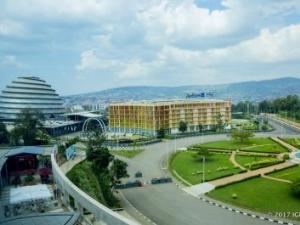Organized by Kaizene, an organization based in Abidjan, Ivory Cost and London, the two days conference will bring together experts in civil engineering, economy, transport and other aspects of life who will convene at Kigali Convention Center to discuss governance policies, the public-private partnerships to boost green housing, Small and Medium Enterprises (SME) development and smart and resilient cities.
Kaizene defines itself as a catalyst enabling public and private companies to improve their services and their quality approach and, above all, to use the potential of their human capital with the mission to ensure the full success of companies by effectively training their staff.
International Organizations such as the Programme for Infrastructure Development in Africa (PDIA) developed by the African Union Commission (AUC), the NEPAD Agency, the African Development Bank (AFDB), and the United Nations Economic Commission for Africa (UNECA), all agree that infrastructure is Africa’s top priority.
Programs and projects of its agencies are expected to lead to an integrated continent, foster international trade, job creation, and sustainable economic growth.
The PDIA is a solution by and for Africans that was endorsed by the Heads of State and Government at their 18th Summit in January 2012 in Addis Ababa, Ethiopia.
Kaizene believes that industrial development induced by infrastructure and construction will enable Africa to solve its major economic and socio-political problems, but also to reduce the global poverty that fuels violence, terrorism, massive migration of unskilled labor and unemployment.
According to the African Development Bank, to alleviate its concerns, Africa will need nearly $100billion a year, while less than half of this amount is available to date hence the imperative needs of investing in Infrastructures.
According to the organizers, Rwanda was chosen to host the conference because it “leads by example.
“To lay the foundations for sustainable development, Rwanda has managed to rise to the challenge of national reconciliation and territorial reconstruction and to this day benefits from very modern infrastructures, good governance, and cleanliness superior to several European cities and has a road network more than 90% asphalted and maintained,” Kaizene says.
Rwanda is the first place in terms of Human Development Progress over the last 20 years, according to the latest report (14th December 2015) of the UN and 7th best-managed country globally according to the World Economic Forum, in its latest report on global good governance released in January 2016.
Several innovative solutions piloted over the last 10 years, providing concrete use cases for understanding the barriers ahead for developing competitive and tailored infrastructures.

